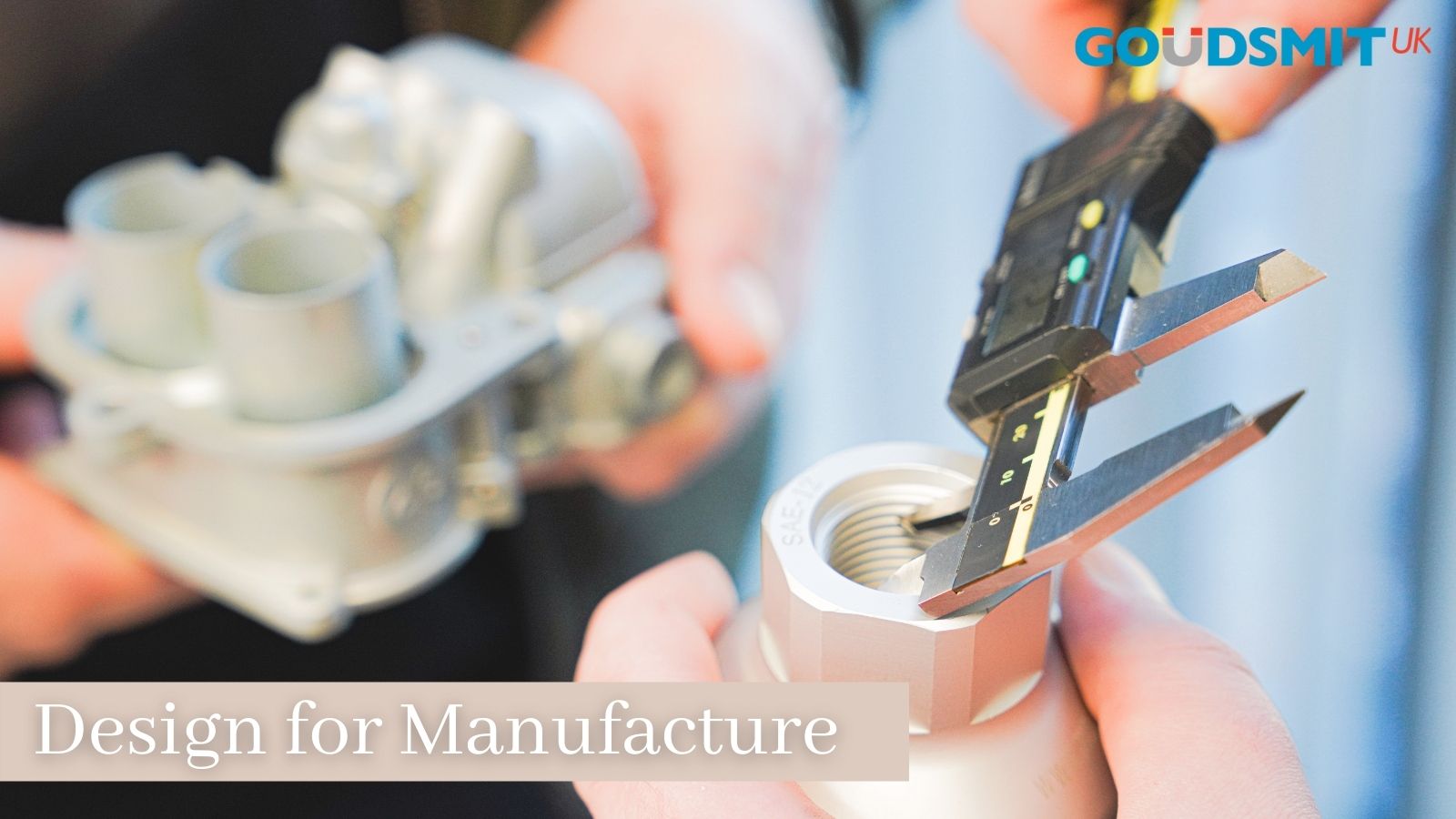Design for Manufacturing (DFM) is the process of designing parts, components, or products for ease of manufacturing with an end goal of making a better product at a lower cost. This is done by simplifying, optimising, and refining the product design. Goudsmit UK can help you design a part that meets all your application requirements using the most economical means of production.
Product design
Product design largely determines the manufacturing cost of the product. Ideally, DFM needs to happen early in the design process before tooling has begun. Early DFM allows any design changes to be completed quickly, therefore avoiding any costly changes later in the process.
Manufacturing existing products more efficiently
Goudsmit UK work closely with customers to offer extensive knowledge and engineering advice on casting, machining, and post processing. Examining design considerations at this early stage enables our customers to design fully functional products to suit their application. Whist also minimising production costs.
Goudsmit UK can help customers design effectively for manufacture by:
- Improving the shape and geometry of products to enhance manufacturability and minimise defects
- Exploring the potential to combine multiple components into a single part
- Considering options that reduce lead time
- Eliminating waste or inefficiencies in production
- Identifying appropriate materials for specific manufacturing processes
- Finding opportunities for light weighting where appropriate
Importance of DFM
DFM is crucial for efficiency and speed. DFM therefore has great cost-reduction capabilities. A focus on the design stage, available through DFM, would significantly reduce the final production cost. It can also enable the identification, quantification and elimination of waste or inefficiencies at various points throughout the manufacture and production process. It may additionally be used as a method of benchmarking and, in doing so, a company can assess the products of competitors.
Outcomes of effective DFM
Successful DFM can result in several outcomes, which are measurable in a multitude of ways.
- Reduce the number of product parts – By reducing the number of product parts, you can reduce the cost of your product. In turn, resulting in less engineering, production, labour, and shipping costs.
- Design multi-functional parts. – Having parts with more than one functions is the simplest way to reduce the total number of parts required.
- Design for ease of fabrication – Choosing the ideal combination between the material and manufacturing process will help minimise production costs. Avoiding expensive and labour extensive finishing such as painting, polishing and finish machining can also help to reduce costs.
- Design your part to minimise handling, especially during production and assembly – Handling includes positioning, orienting, and fastening the part into place. For orientation purposes, use symmetrical parts wherever possible.
Benefits of DFM
DFM offer’s an array of benefits, including:
- Quicker time to market
- Lower production cost
- Identifies and removes any faults
- Higher quality product, as the design can be enhanced at every stage
Goudsmit UK
We pride ourselves in finding solutions to complex engineering challenges for the most demanding industry sectors. Our highly skilled team of engineers have the knowledge and expertise to advise you on DFM.
For more information download our products and services brochure.
Alternatively, email us at info@goudsmit.co.uk or to speak to a member of our team call 02890271001.







